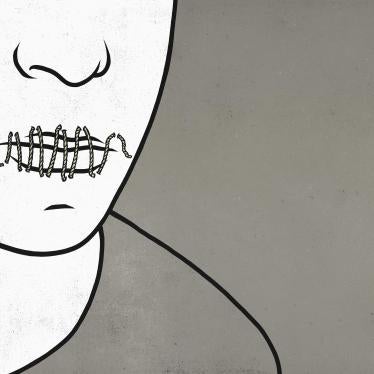As women in the Gulf become more visible, both socially and politically, and as migrants bring with them different ways of living, the region's governments are stepping up their gender policing. To allay fears among conservative elements, they are regulating more tightly what is deemed acceptable behaviour for men and women.
The direct targets of this backlash are those who visibly challenge gender norms - in particular, boyat (an Arabisation of the English word "boy", generally referring to women with a masculine appearance) together with transgender men and women.
In the past few years, dozens of articles and talkshows in the mainstream media have decried the spread of boyat and "the third sex" - a term used disparagingly to describe effeminate men and transgender women. This media frenzy has propelled a moral panic that manifests itself in discriminatory legislation across the region, in police crackdowns and in campaigns to "set them straight".
In 2007, Kuwait criminalised "imitating members of the opposite sex", leading to the arbitrary arrest and detention of hundreds of transgender women. In research in Kuwait this year, Human Rights Watch found that most of those targeted by the police had suffered abuse, torture, sexual assault and harassment at their hands.
In 2009, Dubai began a public awareness campaign, "Excuse Me, I am a Girl", warning Emirati women of the dangers of masculinisation and attempting to set them on the path to "femininity".
The National daily newspaper reported recently that police and the community development authority would collaborate to combat the spread of boyat. Plainclothes policewomen have been deployed in shopping malls and popular hangouts to catch women violating arbitrary codes of female dress and behaviour, although it remains to be seen what this campaign actually entails and whether any boyat have been arrested.
The anxiety over the perceived erosion of cultural norms may be seen as a reaction to the emirate's rapid opening up and swift demographic changes. The regulation of public morality has always been a means for the state to reinforce its sovereignty, particularly in rapidly changing societies.
There are many ways to understand this panic beyond facile explanations of "transphobia" and "homophobia". In several of the more liberal Gulf states such as Kuwait and the UAE, there is a relative margin of state tolerance for both male and female homosexuality among their citizenry as long as it is discreet and doesn't visibly challenge norms of acceptable male and female behaviour and dress.
In fact, most arrests have been for "gay weddings" and boisterous parties. Other arrests took place when behaviour became too public, such as the case of the Saudi man who appeared in a YouTube video behaving suggestively and gender-inappropriately in 2010. This indicates that the greater fear is the perceived challenge to orthodox practices and gender roles, family structures and "cultural values" rather than homosexual behaviour per se.
The visibility of both boyat and transgender women as identifiable markers of gender transgression has led to a disturbing public vilification of both. In various media reports, the homosexual component, while present, is not necessarily the most important aspect of their behaviour; rather, attraction to women is seen as a natural outcome of masculinity and vice versa.
The crossing of gender norms is far more salient in public discourse about boyat and other gender-transgressive individuals. For example, an Emirati psychologist publicly advocated treatment for female masculinity early on, so that it does not lead to homosexuality. Psychologists, social scientists and social commentators treat what they understand as a rejection of women's natural place as a pathology that needs to be contained.
This is a symptom of a deeper anxiety about the erosion of traditional gender norms and roles. In Kuwait, for example, the parliament has been a battlefield over the role and behaviour of women in the public sphere since 1996, with liberals making gains such as securing women's right to vote and run for public office while conservatives succeeded in maintaining the sex-segregation law in universities. The backlash is far from over, however, as more conservative MPs try to ban "revealing" women's swimwear and "regulate" plastic surgery by banning any form of sex reassignment surgery and gender correction.
In Dubai, where only about 12.5% of the residents are Emirati while the rest are western, Asian and Arab expatriates and migrant workers, tensions over a perceived loss of the city to foreigners and the subsequent erosion of morals has led to a similar backlash. In 2008, two Britons were arrested and deported for allegedly having sex on a beach. Newspaper commentators were quick to decry the invasion of "foreign values" and the local press subsequently reported that the government had detained dozens of tourists for a variety of "indecent acts".
In times of social strain, gender and sexuality often become the focal point of broader anxieties, a phenomenon evident in media frenzies, new proposed legislation, and the brutality of the police and the impunity with which they act against an already vulnerable population.
These actions violate the most basic human rights of these individuals: the right to be free from violence and torture, to adequate healthcare (which precludes "reparative therapy") and the right to self-expression and privacy. Within this logic, the bodily autonomy of women and those who transgress gender norms will unfortunately continue to be eroded and subject to politically sanctioned containment and violence.







